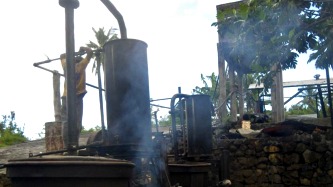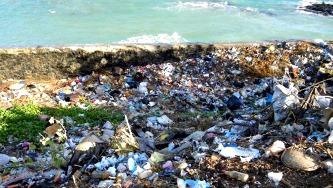

Swiss Partners
Association Terre et Faune, St-George,
www.terre-et-faune.org,
Isabelle Chevalley
HEIG-VD, Yverdon-les-Bains,
www.heig-vd.ch,
Olivier N’doki
Project Type:
Technology:
Country:
Project Status:
Project Start:
End of Project:
Contract:
Swiss Contribution
The “Terre et Faune Association” (Land and Wildlife Association) is the project’s initiator and supporter. This association has been active in the Comoros for more than 15 years and works in close collaboration with Ulanga, the Comorian Association for Nature Protection. The HEIG-VD (School of Engineering of the Canton of Vaud) is responsible for the realization of furnace testing, its on-site installation, as well as training for its users.
Description
Currently, the Comoros Islands are affected by deforestation (up to 8% per year) because wood is used to run the hundreds of ylang-ylang distillers that are located on all the islands. It takes one ton of wood to produce three kilos of this essential oil. Moreover, since there is no plastic waste management, burning takes place in the open air. The project’s objective is to contribute to solving two serious environmental problems by replacing existing distillation furnaces with furnaces that can burn certain pre-sorted combustible waste fractions. The School of Management and Engineering Vaud in Yverdon has developed a furnace coupled with a heat exchanger. A first furnace assembly will be carried out in Switzerland to validate the performance of the heat transfer required for distillation; then it will be transferred to the Comoros, with a follow-up for its operational start-up and optimization. In parallel to this project, the Earth and Wildlife (Terre et Faune) Association has already built a recycling centre in the capital city of Moroni.
Results
The work carried out on the heat exchanger showed that the selected technology was not the most suitable for local conditions. A new development in Switzerland was planned regarding the technological adaptation of the combustion process, which no longer meets REPIC’s criteria. Thus, the project was cancelled.